Building Community
McLaren High School in Callendar reflect on their approach to building community during remote learning. You can follow McLaren High School on twitter @McLarenHigh
Access the full presentation here
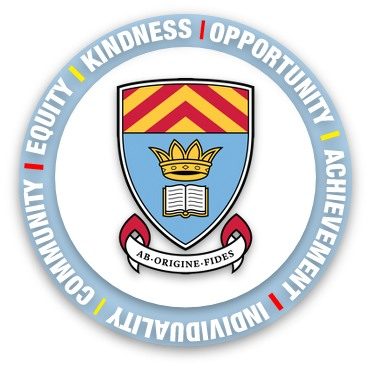
McLaren High School in Callendar reflect on their approach to building community during remote learning. You can follow McLaren High School on twitter @McLarenHigh
Access the full presentation here

Digital technology skills are one of my favourite things to teach because of the opportunities and experiences they provide pupils with. I have taught children who struggle with putting pen to paper, however when provided with the correct technology they flourish. The technology we use in the classroom has allowed my pupil’s imaginations and creativity to come to life and it has boosted the confidence of shy children, allowing them to become more animated and involved with their learning.
Technology allows learners to engage in their education in ways that haven’t always been possible. I hope that this will allow my pupils, who may previously have disengaged from education, to go on to explore avenues that wouldn’t otherwise have been possible.
Fun fact: Ada Lovelace and I share a birthday, just a few hundred years apart!
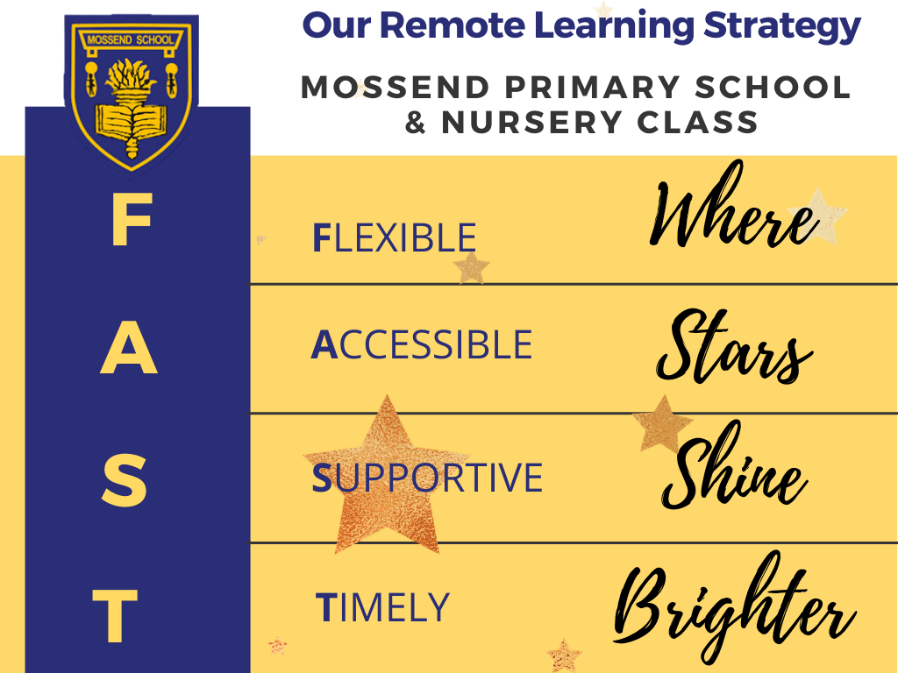
The role of the teacher is forever evolving. We work in a complex and dynamic society, and this unexpected pandemic shone the spotlight on the tenacity, innovation and resilience of our profession across Scotland as we all worked hard to find ways to continue our delivery of quality teaching and learning in an unchartered and uncertain context.
At Mossend Primary School we had our one Microsoft Team set up and the reasons for this we discussed on Blog 2 – Team Mossend, but we realised early on that it could very easily become overwhelming as the school closed the doors for the last time and an increasing number of children began logging in from home. Furthermore, there was a reasonable and fair expectation from some families that children would continue their learning from where they left off and eyes were now looking to the teacher for this guidance, routine and structure, when the contrasting reality was that no one in our school had ever taught remotely before and no school in Scotland had been preparing for this eventuality. We were all in it together.
Therefore, we knew two people could not sustain a full school Microsoft Team with live lessons on their own, so naturally the next key decision had to be about how to get our staff team involved and upskill them as soon as possible to contribute since they were now working from home too; it would involve speaking to the hearts and minds of our team – it could not be something forced upon them or done to them, instead they had to be on the journey with us.
The heart part was easy to speak to as we are very lucky to work in a school full of dedicated, passionate and talented teachers who commit each day of their lives to do what is best for our children and families, but we needed to change the mindset that some held of their ICT abilities and their confidence in being able to deliver remotely; above all we had to open their eyes to the possibilities for digital teaching and learning and our new way of working.
Therefore, in the first week that schools closed we set up our own in-house digital Career Long Professional Learning (CLPL) sessions based around our Remote Learning FAST strategy we discussed in Blog 1:
F – They would be Flexible with follow up videos recorded that the team could access in their own time or refer back to at any point.
By the end of the 12 weeks, we had created a total of 15 ‘How to’ videos covering everything from logging into Microsoft Teams, Creating a Sway, Immersive Reader and more. We are happy to share our ‘Netflix of CLPL’ with anyone reading this blog who would benefit from it.
In addition to group CLPL, we also conducted 1-2-1 sessions when requested and specific group sessions such as for our Nursery team, who had been involved in setting up a Nursery Zone Sub Site for our younger children who did not access Glow. Finally, a further round of CLPL at the end of the term was offered, but by this stage, most of our team had evolved their teaching practice and were revelling in their newfound digital skills and confidence in delivering remote lessons.
A – It would be Accessible, as our team had to be able to access the CLPL without additional stress and this was difficult when we were not in the same building. We chose to use the Zoom platform for our first CLPL session to demonstrate how to download and login to Microsoft Teams to join a call.
The follow-up videos were emailed afterwards and placed on our team SharePoint site and we ensured all our CLPL sessions were short, sharp 15 minutes to make it accessible to our team with childcare or family responsibilities of their own, with further external CLPL sessions shared including those from Digital Learning Team at Education Scotland to allow staff access to upskilling when it suited them and their circumstances. For many of us, it did feel like we had returned to school ourselves.
S – Supportive. This was a journey that we were all on, but it was a journey none of us had completed before and it could very easily have become overwhelming, particularly in the context of our own team’s childcare, family and health concerns. The pandemic impacted teachers and their families too, but we all carried on professionally smiling in front of video cameras and talking to faceless icons.
Whatever contribution our team made, it was valued and no one was ever made to feel like they were not doing enough; there was never an expectation that staff had to sign up for live lessons, it was always voluntary.
Nevertheless, some of our team found that initially logging in to Microsoft Teams and observing lessons from others or ‘team teaching’ built their confidence and they enjoyed the daily chats and interaction with their pupils and the routine it gave to their own lives. Others preferred not to be on camera but were able to help with the creation or gathering of resources around their personal commitments and circumstances.
Every day was indeed a school day and the initial decision of having one school Microsoft Team meant that everyone could go at their own pace, in a Supportive environment with no expectations of anyone.

T – Timely. We are extremely fortunate in Mossend Primary School and Nursery Class to work in with lots of talented teachers who have a passion for varying subjects, therefore the Timing of the inhouse digital CLPL right at the beginning of the pandemic allowed these teachers to see a way of delivering their skillsets digitally, something that up until now had not needed to be considered.
This was critical to our overall success, as it allowed us to tap into the talent of our team and be able to expand and diversify our timetable to offer a range of quality and engaging lessons such as British Sign Language, STEM, arts and crafts, coding and physical challenges. Our children also loved seeing and speaking to a range of teachers and this increased overall engagement, which we will blog about next week.
Teachers are committed to Career Long Professional Learning, it is embedded within our professional standards, yet the difference in this scenario was that our professional learning could not take place at a convenient time or even over a period of time, we had to learn and adapt quickly while supporting our families in their newfound normal and living with the consequences of the pandemic in our personal lives.
Therefore, we are extremely proud and thankful of our talented team at Mossend Primary School and Nursery Class who did just that and in the end went on to deliver nearly 200 live lessons across the 13 weeks, working together as #TeamMossend.
Patricia McKay is the Depute Head Teacher at Mossend PS & NC in North Lanarkshire and Gordon Reid is a class teacher and ICT Co-ordinator. Together they facilitated and led the remote learning strategy for the school.
Mossend PS & NC is a non-denominational school situated in Bellshill, North Lanarkshire. The school has 382 pupils and there are 40 children in the nursery attached to the school.
Patricia McKay is the Depute Head Teacher at Mossend PS & NC in North Lanarkshire and Gordon Reid is a class teacher and ICT Co-ordinator. Together they facilitated and led the remote learning strategy for the school.
Mossend PS & NC is a non-denominational school situated in Bellshill, North Lanarkshire. The school has 382 pupils and there are 40 children in the nursery attached to the school.
Twitter: @mossendps @Mr_G_Reid
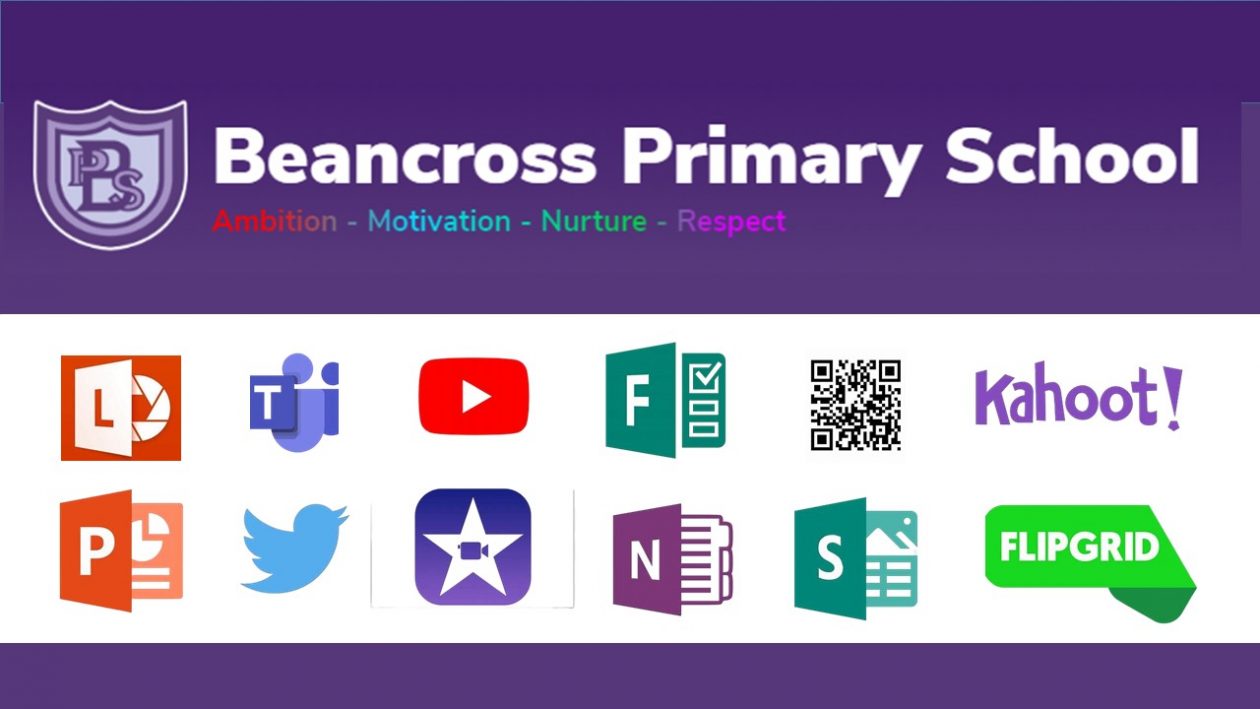
Beancross Primary School have taken some time to reflect on their digital learning journey. Their presentation covers the challenges and opportunities the school faced during remote learning.
The presentation covers the key features and tools within Microsoft Teams as well as the other digital learning apps used by the school.
Twitter: @BeancrossPS
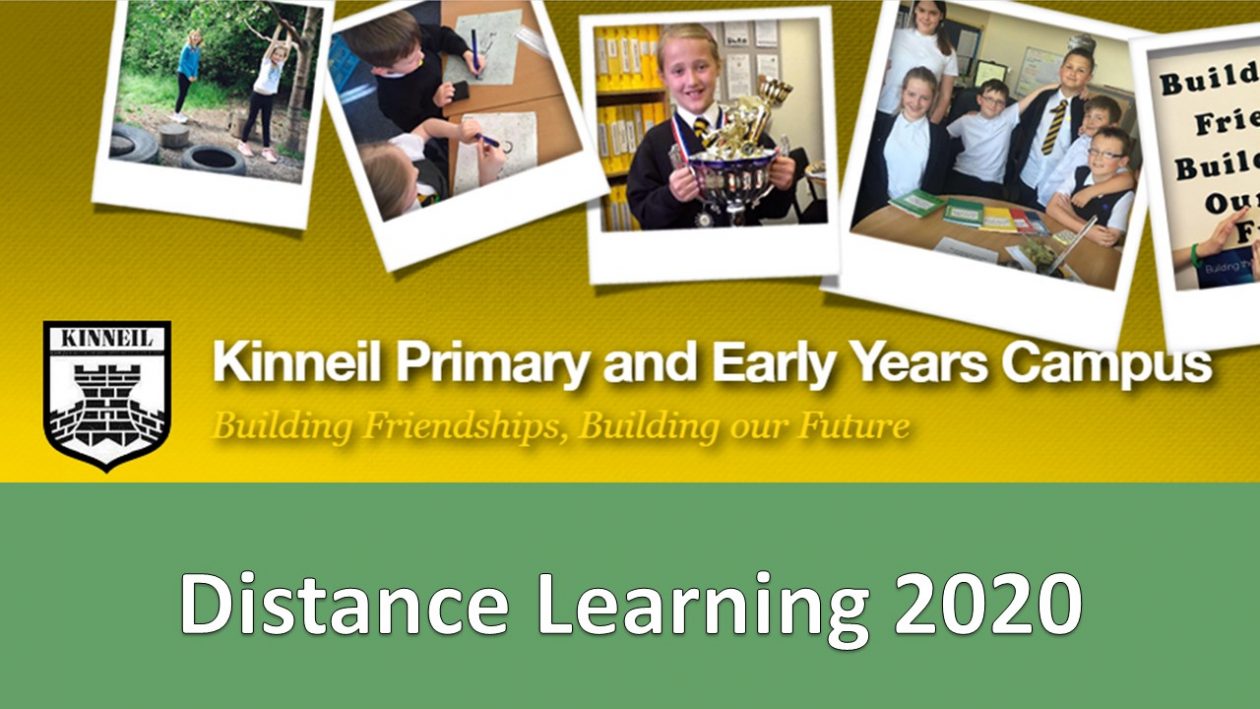
Kinneil Primary School in Bo’ness have shared with us their distance learning experience over the school building closure period. This Sway outlines their use Teams, Twitter, Sumdog and Big Maths across the school, from P1 to P7, to deliver curricular content and wider school experiences such as assemblies and choir.
Twitter: @Kinneil_PS
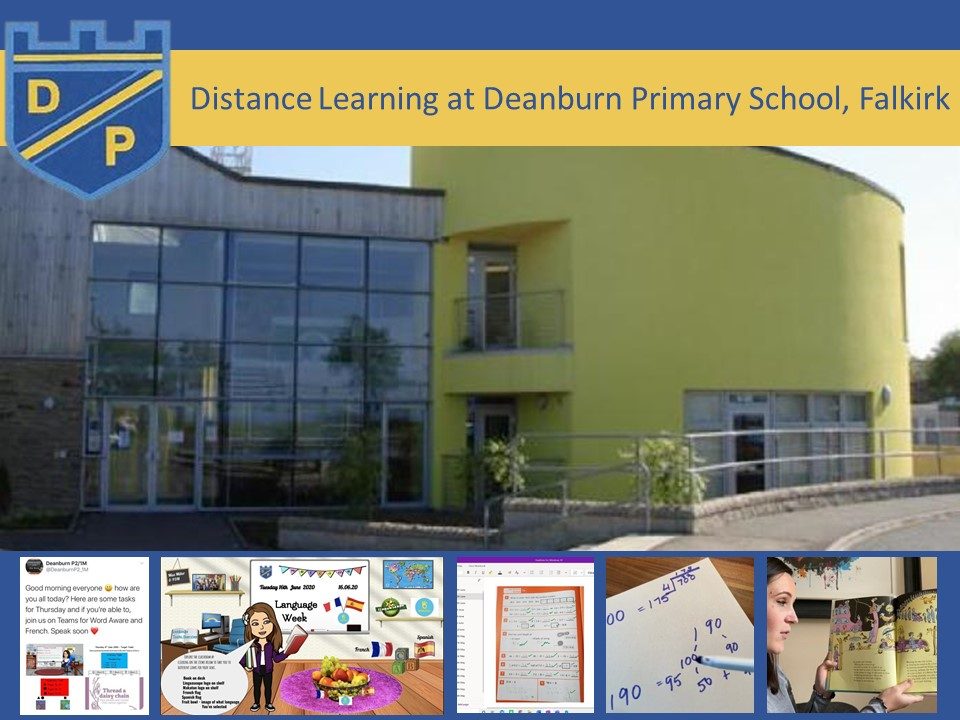
At Deanburn Primary, we have developed our use of digital learning platforms throughout the period of school closure. We have worked together as a team to develop new and exciting ways to connect with our pupils and their families, and to support them in navigating Microsoft Teams as a new ‘classroom’. We have been able to consolidate key learning through a number of ways but have also enjoyed introducing concepts and capturing the unique learning of our pupils.
All of our staff, our Senior Leadership Team, Teaching Staff, and Support For Learning Staff have maintained regular contact with our children and have engaged in the wide range of approaches shared – it has been a journey!
Please take a look at the sway produced by Deanburn Primary School which provides an overview, and examples of how they have used the Office 365 tools within Glow, use of video and social media for learning and collaboration.
Twitter @DeanburnPS
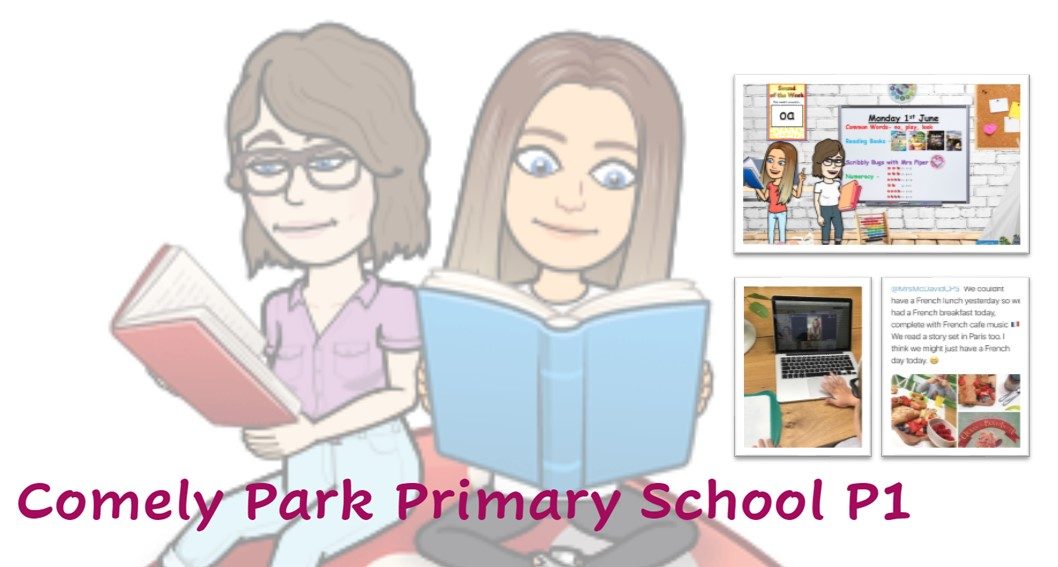
Sharon McDavid and Aileen Ramsay are stage partners teachers at Comely Park Primary School and have been teaching primary 1 this year.
This Sway highlights some of the different ways that they have engaged the youngest learners over the remote learning period
It includes information around
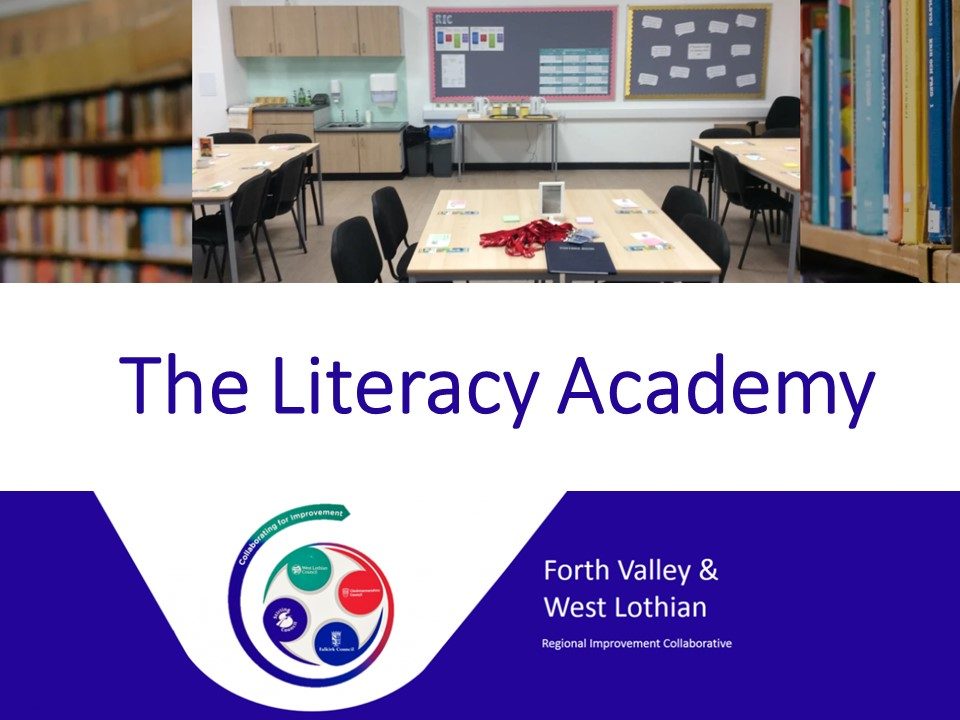
The Literacy Academy is a central change idea of the Forth Valley and West Lothian Regional Improvement Collaborative Literacy Plan informed by the National Improvement Framework, the EEF toolkit and Hattie’s meta-analyses of “what works” in closing the socio-economic gap in literacy. Like many others, we have had to move our programmes on line since the start of the lockdown and, consequently, we’ve been running on-line training sessions and webinars for teachers in our four local authorities (Stirling, Clacks, Falkirk and West Lothian) as well as creating and collating resources. We’ve been delighted by the response.
Explore the full resource here
Dr. Janet Adam is the Literacy Academy Lead in the Forth Valley & West Lothian Regional Improvement Collaborative
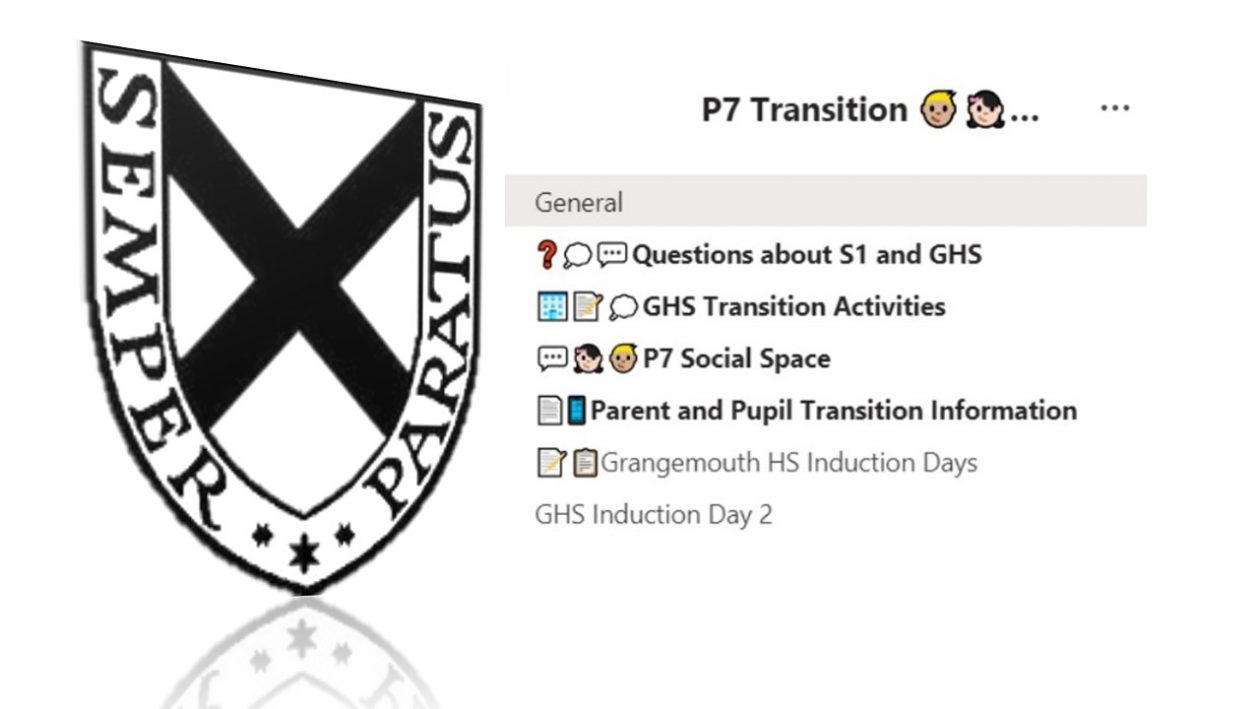
Grangemouth High School have shared the following Sway with us. This is about their collaborative P7 virtual transition programme with Beancross Primary School, Bowhouse Primary School, Moray Primary School and Sacred Heart RC Primary School.

Currently, the page has 1,398 members; teachers ask to join daily and, most importantly, it gets people sharing resources. I am always impressed with the different resources I find on it and I am very grateful to everyone who has taken the time to upload their own work – we all know how long it takes to produces high-quality resources!
Given the current climate, teachers are working harder than ever to ensure that our young people are receiving the best possible support in so many different areas. I am delighted to see that my OneDrive page is being utilised and is supporting people during these unprecedented times and can’t wait to watch it grow.
Claire McVittie
Twitter: @missmcvittie
Email: claire.mcvittie@westlothian.org.uk
Instagram: @st_kents_english
You must be logged in to post a comment.